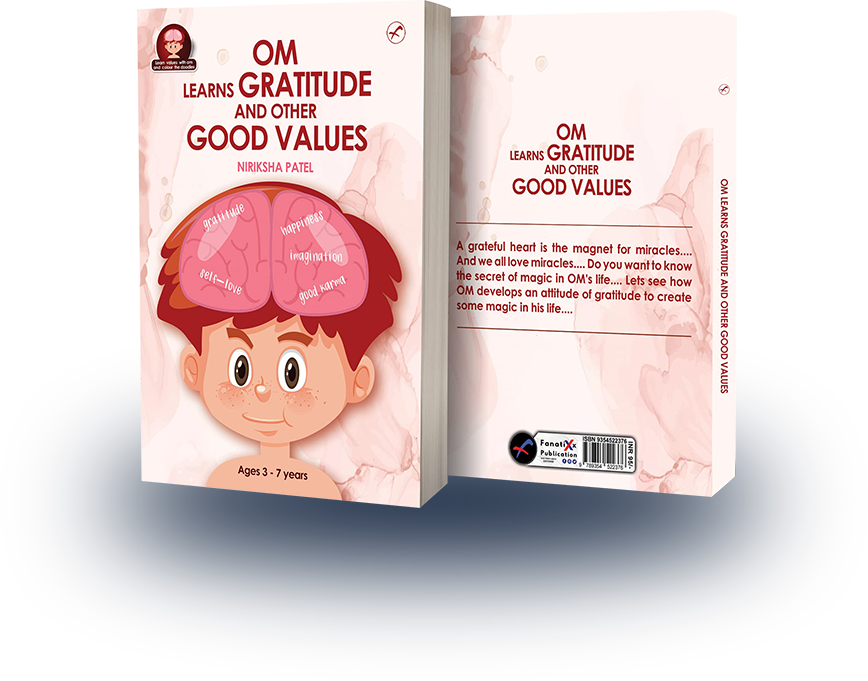Table of Contents[Hide][Show]
The Power of Play+−
- 1. Reading Together
- 2. Learning Through Play
- 3. Exploring Nature
- 4. Cooking Adventures
- 5. Arts and Crafts
- 6. Educational Apps and Online Resources
- 7. Music and Movement
- 8. Math in Everyday Life:
- 9. Encourage Questions
- 10. Family Learning Time
- 11. Learning from Life Experiences
- 12. Create a Learning Space
- 13. Watch Educational Videos
- 14. Learning Games
- 15. Encourage Curiosity
- In The NutShell
- On The End Note
Discover how parents can actively participate in nurturing their little ones during this beautiful and transformative period of their lives.
The Power of Play
Within the realm of play lies the transformative power to nurture joy, curiosity, and lifelong learning.
1. Reading Together
Reading is a wonderful way to expand your child’s vocabulary, language skills, and imagination. Set aside time each day to read together. Let them choose their favorite books and take turns reading aloud.
Set aside time before bedtime to read a storybook together with your child.Reading together helps in language development, enhances vocabulary, and improves comprehension skills.
It also strengthens the parent-child bond and fosters a love for reading. Studies show that early exposure to reading positively impacts cognitive development.
2. Learning Through Play
Engage in playful activities that promote learning, such as building blocks, puzzles, and educational games. Play pretend games to encourage creativity and storytelling.
Play is essential for cognitive, social, and emotional development in children. Building with blocks promotes spatial awareness, problem-solving, and fine motor skills. Play also enhances creativity and imagination, contributing to overall brain development.
3. Exploring Nature
Spend time outdoors exploring nature. Take nature walks, observe plants and animals, and talk about the environment. It’s an opportunity to learn about the world around them.
Nature exploration stimulates curiosity, observation skills, and a sense of wonder. It also reduces stress and improves attention span, as studies have shown that spending time in nature positively affects children’s mental well-being.
4. Cooking Adventures
Involve your child in simple cooking tasks, such as measuring ingredients or mixing. It’s not only fun but also helps with math skills and following instructions.
Cooking activities support math skills, such as measurement and counting. It also encourages following instructions, sequencing, and understanding cause-and-effect relationships.
5. Arts and Crafts
Encourage creativity with arts and crafts projects. Provide various materials like crayons, markers, colored paper, and let them express themselves through art.
Example you can create a collage together using various materials and colors.
Engaging in art activities promotes fine motor skills, hand-eye coordination, and creativity. It also encourages self-expression and boosts self-esteem.
6. Educational Apps and Online Resources
Explore educational apps and online resources designed for kids. There are many interactive and engaging platforms that teach various subjects like math, science, and languages.
Educational apps and online resources can reinforce learning concepts in a fun and engaging way. They provide visual and auditory stimuli, contributing to better information retention.
7. Music and Movement
Sing songs together, dance to music, and play musical instruments. Music enhances cognitive development and improves coordination.
Music and movement activities enhance brain development, memory, and cognitive skills. They also improve coordination and rhythm.
8. Math in Everyday Life:
Introduce basic math concepts during everyday activities, like counting objects, measuring ingredients, or sorting items by size or color.
Example you can count the number of stairs when going up or down in your home.
Incorporating math in everyday activities helps children understand real-life applications of mathematical concepts. It strengthens numeracy skills and mathematical thinking.
9. Encourage Questions
Answer their questions and encourage curiosity. Ask open-ended questions to prompt critical thinking and discussion.
Encouraging questions supports critical thinking and inquiry-based learning. It fosters curiosity and a thirst for knowledge.
10. Family Learning Time
Create a regular family learning time where everyone can share something they learned during the day. It can be a fascinating way to exchange knowledge and interests.
Family learning time promotes communication, knowledge sharing, and builds a culture of learning within the family.
11. Learning from Life Experiences
Involve your child in daily tasks, like grocery shopping or gardening, to teach real-life skills and concepts.
Learning from real-life experiences helps children develop practical skills, problem-solving abilities, and a sense of responsibility.
12. Create a Learning Space
Designate a special area in your home for learning activities. Keep books, educational toys, and art supplies accessible.
Having a dedicated learning space fosters a positive association with learning, encourages independent exploration, and helps organize learning materials.
13. Watch Educational Videos
Select age-appropriate educational videos or documentaries that teach new concepts and encourage discussions afterward.
Educational videos provide visual and auditory stimuli, enhancing comprehension and knowledge retention. They also expose children to new topics and concepts.
14. Learning Games
Play educational board games or interactive learning games that challenge their problem-solving and critical thinking skills.
Play board games like Scrabble or Monopoly that involve strategy and critical thinking.
Educational games promote problem-solving, decision-making, and social skills. They encourage learning in a playful and interactive manner.
15. Encourage Curiosity
Celebrate and foster your child’s curiosity by exploring topics of interest together and providing opportunities for discovery.
Example: Support your child’s interest in dinosaurs by reading books and watching documentaries together.
Encouraging curiosity stimulates a child’s innate desire to explore and learn. It fosters a growth mindset and a love for lifelong learning.
You might also be interested in reading our blog on Harnessing the Power of Positive Reinforcement: 10 Effective Tips for Parents.
Some Out-Of-The Box Ideas
Here are some unique ideas, along with scientific reasons and examples
1. Gardening and Nature-based Learning
- Idea: Create a mini-garden within the playgroup premises where children actively participate in planting and nurturing various plants and flowers.
- Scientific Reason: Gardening engages children in hands-on learning experiences that stimulate their senses and curiosity. It promotes fine motor skills, fosters a connection with nature, and enhances scientific understanding as children observe plant growth, soil, and weather changes.
- Example: Encourage children to sow seeds, water plants, and observe the lifecycle of a flower from a seedling to full bloom. They learn about photosynthesis, the role of insects in pollination, and the importance of caring for the environment.
2. Creative Recycled Art
- Idea: Organize an art project that encourages children to create artworks using recycled materials like cardboard, bottles, and old newspapers.
- Scientific Reason: Engaging in creative recycled art fosters critical thinking and problem-solving skills. It also nurtures environmental awareness, as children learn about reducing waste and repurposing materials.
- Example: Conduct an “Eco-Art Exhibition,” and ask your child to display their masterpieces made from recycled materials. Encourage them to explain the process behind their artwork, discuss about sustainability and environmental responsibility.
3. Yoga and Mindfulness Sessions
- Idea: Introduce simple yoga poses and mindfulness exercises tailored to the playgroup age group.
- Scientific Reason: Yoga and mindfulness practices enhance children’s emotional regulation, reduce stress, and improve focus and concentration. These practices have been linked to positive changes in brain function, including increased gray matter and improved executive functions.
- Example: Conduct “Yoga Adventures,” engage your child in animal-themed yoga poses and practice deep breathing techniques to imagine they are exploring the jungle or swimming with dolphins. This helps them develop self-awareness and emotional resilience.
4. Mini Science Laboratory
- Idea: Set up a small science laboratory with age-appropriate experiments and exploration activities.
- Scientific Reason: Hands-on science experiments stimulate children’s curiosity and help them develop a basic understanding of scientific principles. It enhances their cognitive development, problem-solving skills, and encourages a scientific mindset.
- Example: Conduct “Fizzing Fun” experiment, let your child mix baking soda and vinegar to observe the chemical reaction and the release of carbon dioxide bubbles. They learn about basic chemical reactions and the properties of different substances.
5. Interactive Storytelling
- Idea: Transform storytelling sessions into interactive experiences by incorporating props, puppets, or role-playing.
- Scientific Reason: Interactive storytelling enhances language development, vocabulary, and comprehension. When children actively participate in storytelling, it stimulates their imagination and creativity.
- Example: Have “Story Theater,” and let your children dress up as characters from a story and act out the plot. This not only develops their storytelling skills but also boosts their confidence.
Also check out our blog on 20 Social Emotional Activities for Preschoolers.
In The NutShell
It is undeniable that children grasp new concepts and skills through play and exploration, making the early childhood years a magical phase of growth and discovery.
As parents, our role in shaping their learning journey is paramount.
By fostering a love for learning, promoting social development, and actively involving parents in this beautiful process, we lay a solid foundation for these young minds to thrive and blossom.
Also, check out our blog on 20 Ways to Develop Growth Mindset and Resilience in Children.
On The End Note
As part of this commitment to empowering young hearts and minds, I invite you to check out my book “OM Learns Gratitude And Other Good Values.”
In this heartwarming tale, young OM discovers the transformative power of Gratitude, Positive Affirmations, and Visualization to manifest his desires.


 Stressed Working Mom: Tips, Affirmations & Visualization To Overcome It
Stressed Working Mom: Tips, Affirmations & Visualization To Overcome It